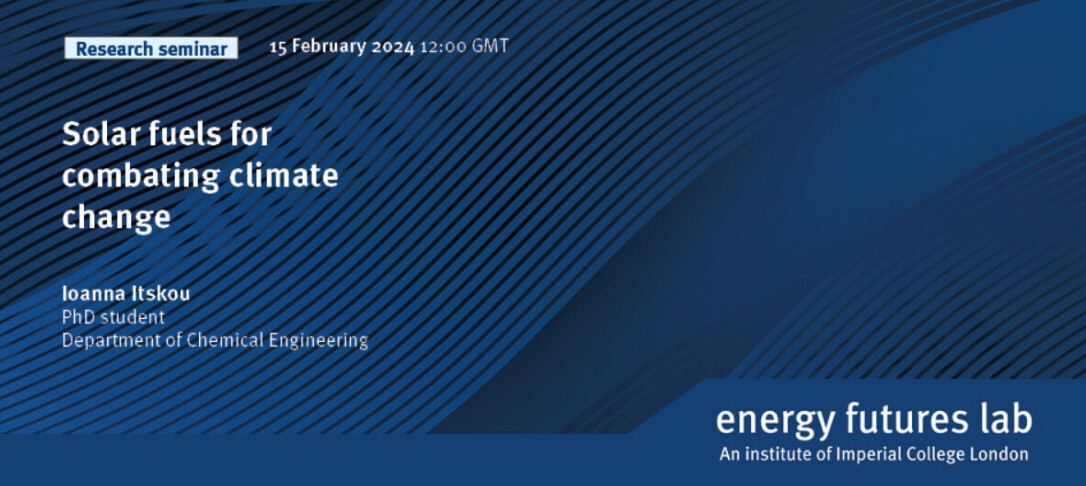
Solar fuels for combating climate change
As we strive to reach the net-zero target by 2050, it is clear that the production and use of sustainable fuels is essential. By using solar energy – a renewable source with immense energy output –, we can produce so-called solar fuels. A promising pathway towards the production of such fuels, which is both green and safe, is photocatalysis. In this process, some materials can convert molecules such as H2O or CO2 into value-added chemicals and fuels, upon light irradiation. These materials are called photocatalysts. H2O splitting to produce H2 is the most broadly studied photocatalytic reaction, partly due to its manageable thermodynamic barriers. Photocatalytic CO2 reduction is another reaction of interest, combining utilisation of CO2 emissions and production of sustainable fuels (such as methane or methanol). However, numerous challenges remain; major ones constitute the design, production, and deployment of an efficient photocatalyst.
My research is focused on the development of photocatalysts for CO2 photoreduction, and understanding of their chemical, sorptive and optoelectronic properties – which can regulate catalytic activity. So far, we have worked with nitrides (boron nitride and carbon nitride) and their tuning via non-metal elemental doping (such as with boron, phosphorus, sulfur). These materials have the potential to become multifunctional materials, by both capturing and converting CO2 under UV (3% of total sunlight) and visible light irradiation (43% of total sunlight). We are trying to bridge the knowledge gaps surrounding these materials for solar fuels production, and provide a more fundamental understanding on the effect of doping.
Biography:
Ioanna Itskou obtained her M.Eng. degree in Chemical Engineering at Aristotle University of Thessaloniki (Greece), and joined Camille Petit group in Chemical Engineering Department of Imperial College London (UK) as a Ph.D. student in 2020. She is now a 4th-year Ph.D. student focusing on the optoelectronic and photocatalytic properties of porous materials.
About Energy Futures Lab
Energy Futures Lab is one of seven Global Institutes at Imperial College London. The institute was established to address global energy challenges by identifying and leading new opportunities to serve industry, government and society at large through high quality research, evidence and advocacy for positive change. The institute aims to promote energy innovation and advance systemic solutions for a sustainable energy future by bringing together the science, engineering and policy expertise at Imperial and fostering collaboration with a wide variety of external partners.